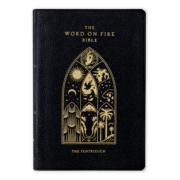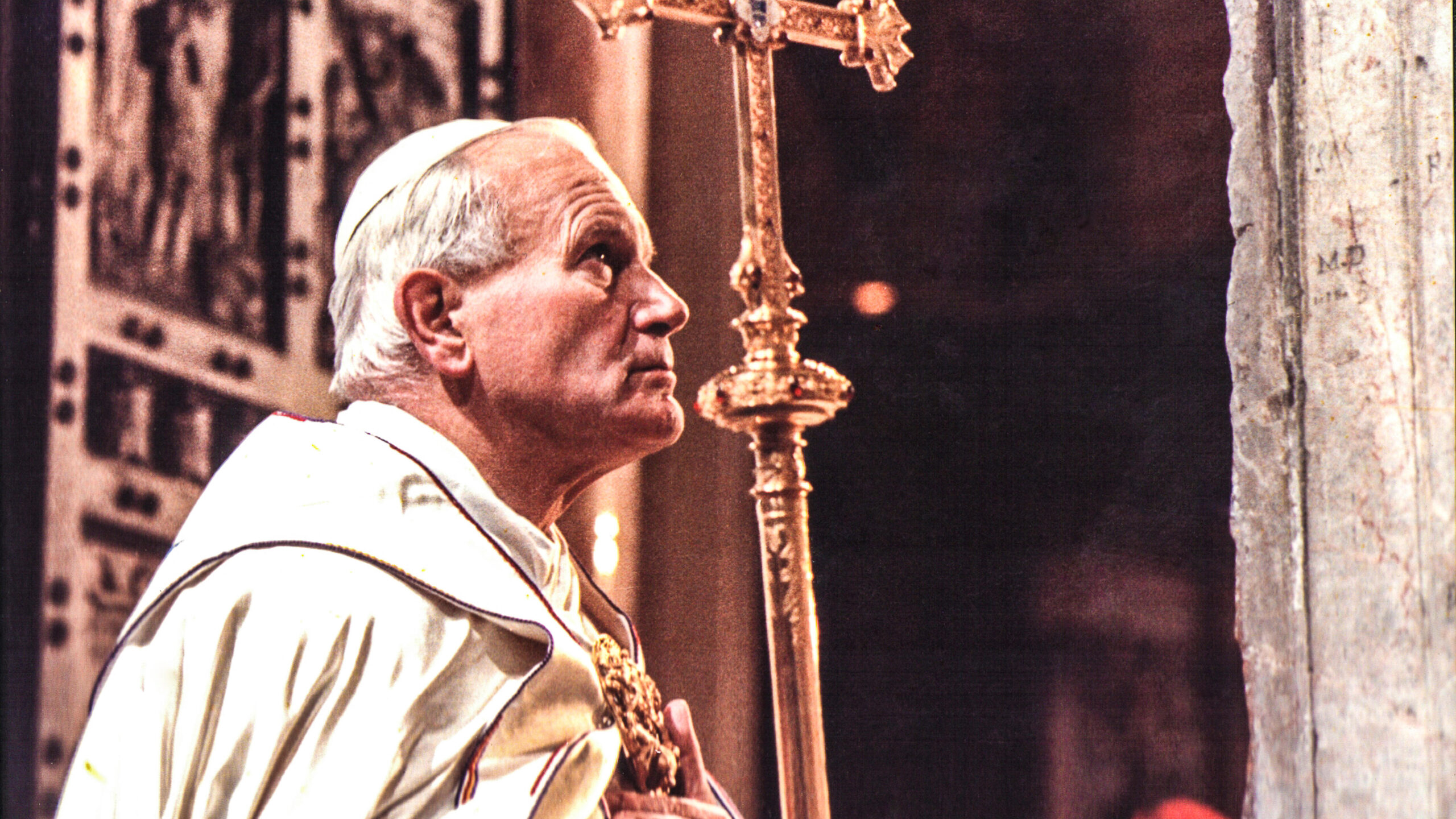St. John Paul II always saw himself as a poet. However, many descriptions of the late pope overlook his poetic heart. A couple of weeks ago, I attended a conference on the Catholic imagination where a presenter, trying to present Pope Francis as primarily of a literary mind—seeing the world in shades of “black and grey”—contrasted him with “Pope Benedict XVI the theologian and Pope John Paul II the philosopher.” While this way of distinguishing the three pontiffs was a rough-and-ready way of getting at his main point about Francis, I have to admit that it ticked me off.
Earlier that day, I gave little talk on the Polish Romantic poet Cyprian Norwid, who Nobel laureate Czeslaw Milosz described as “undoubtedly, the most ‘intellectual’ poet ever to write in Polish,” and the significant influence Norwid had on the mind of John Paul II. Thus, upon hearing John Paul II described mainly as a “philosopher” (granted, he was officially a philosopher), in contrast to Pope Francis’ literary mind, caught my attention. I never had the chance to talk to the presenter about this description, and I am sure he would remind me that his talk was not about John Paul II and indeed John Paul II was the only pope of the three to hold a philosophy post. However, my concern is that we in the West tend not to associate John Paul II with poetry whereas my experience in talking to Poles who knew John Paul II mostly describe him as an intellectual poet, reading his philosophy and theology as stemming from his poetic heart.
Only love is the answer. Only a poet could see that.
Over the summer, I visited the John Paul II Museum in Wadowice, his hometown. It was better than I expected, and I came away with a deeper appreciation for this saint, particularly his love of poetry. I have read George Weigel’s Witness to Hope and many other John Paul II biographies that stress this, so it should be of no surprise. However, I did not realize the extent to which John Paul was enraptured by the poetic word. Since he was a little boy, Karol Wojtyła was reading with his father the Romantic works of Henryk Sienkiewicz. His report card shows his deep love for the study of language. He studied Latin, Greek, German, and, I think, French. It has been reported that later in life he knew around fifteen languages. From Wadowice, Wojtyła went to Krakow’s Jagiellonian University to study Polish literature and history, and he soon joined the Rhapsodic Theatre in Krakow, known as the “theatre of the living word.” Even Wojtyła’s understanding of Polish history was seen through the lens of the poets. On a side note, one of the most engaging Polish history books I have ever read (although scholars would not consider it history proper), is Czeslaw Milosz’s The History of Polish Literature. But this book is proof that Polish history is best told through the lens of the poets. One of my former teachers, a student and good friend of John Paul II, Dr. Stanislaw Grygiel, would concur.
A couple of year ago, my wife and I met Professor Grygiel in Krakow’s Main Square (Rynek) by the Adam Mickiewicz statue at its center. The statues at a city’s center say much about its culture, and Poland, particularly Krakow, is very much a land of poets. It is very important to keep this in mind when understanding its great son Wojtyła. Over coffee and juice at an elegant cafe in Krakow, Grygiel, very much a poet himself who every time I meet him sings the praises of Plato and Dante, explained to us the importance of poetry in the life of John Paul II. He said that John Paul always regretted that he did not immerse himself enough in poetry throughout his pontificate, and that’s why near the end of his life in 2003 he composed the Roman Triptych, a collection of poetry, to pay his debt to the “great lady,” as he called poetry. Wojtyła was well known as primarily a poet. When asked shortly after Wojtyła’s appointment as archbishop of Krakow what he was like, the primate of Poland, Cardinal Stefan Wyszynski, said, “He is a poet.” But God chose a poet as the pope who would lead the Church into the new millennium.
Grygiel could not imagine higher praise of Wojtyła, when some people like Wyszynski might have seen it as an impediment to higher office. I am sure the Communists—like Zenon Liszko, the Marshal of the Sejm (Polish parliament)—suggested Wojtyła as archbishop of Krakow after refusing Wyszynski’s seven candidates for the position. Poets are easy to manipulate, right? And poets have no sense of the real world, which according to many people today is nothing but power politics or Realpolitik. But as a poet who loved the truth—namely, the truth of man in the light of Christ, the Word Incarnate—Wojtyła as Pope John Paul II was able to overcome many political enemies. Unlike the Marxists who saw all dealings with the enemy in terms of struggle, because of Christ, John Paul dealt with them in love. He understood that man is a spiritual being and that the view of man solely from a political and economic perspective was inadequate. Only love is the answer. Only a poet could see that.

In addition to being a poet, Wojtyła was also a dramatist. Polish poets and playwrights do not make much of a distinction between the drama of man and the drama of salvation history. For them, the stories of Scripture narrate the story of man. In this vein, he wrote three biblical plays: David, Job, and Jeremiah: A National Drama in Three Acts. For Wojtyła, the inner self and the life of a nation are best understood in light of revelation, ultimately in Christ himself. There have been many informative articles on John Paul II’s Polish Romantic Messianism in Notre Dame’s Church Life Journal very recently, and I encourage you to check them out. Articles like Pawel Rojek’s—citing Czeslaw Milosz’s growing conviction—make it clear that John Paul II’s central identity is as a Polish Romantic. And while this may be controversial to some who want to exclusively present John Paul II as a philosopher, it is a better lens through which to make sense of the man who in his interviews, especially Memory and Identity, repeatedly mentions the Polish Romantics.
Professor Grygiel would be in agreement. While it is right to emphasize the influence St. John of the Cross the mystic had on his Trinitarian personalism of self-gift, the role the Polish poets played, especially Norwid, in forming his Catholic imagination was definitive. As a teenager, Wojtyła memorized the whole of Cyprian Norwid’s “Promethidion.” In his book Discovering the Human Person: Conversation with John Paul II, Grygiel states, “I think I can say that in this work [“Promethidion”], Karol Wojtyła found a confirmation of his adequate anthropology.”
Promethidion means “Prometheus’ child,” which, as Norwid sees it, is work. But work is not exclusively the result of original sin. Through work accepted in love, man finds his freedom, or as Norwid puts it, his resurrection. Norwid has been described to English speaking audiences as the Polish Gerard Manley Hopkins in his love for creation—all dappled things—and Christian paradox. John Paul’s reflections on marriage and family, work and art, fundamentally man as the priest of all creation, are influenced by Norwid’s poetry. Some Poles uphold Norwid even as Poland’s greatest theologian. This might strike many theologians of an analytic bent as not very precise, but it is interesting that such strict boundaries (philosopher, theologians, poet, historian) apply in Poland. Near the end of Milosz’s section on Norwid in The History of Polish Literature, he quotes Mieczyslaw Jastrun’s introduction to the Selected Poems of Norwid as an apt description on the poet:
It is said that Norwid is first of all a thinker, a philosopher. This is incorrect. Norwid is, first of all, an artist, but an artist for whom the most interesting material is thought, reflection, the cultural experience of mankind.
Such a quote applies to St. John Paul II as well.
